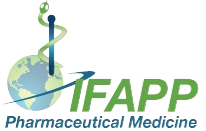For over 30 years pharmaceutical medicine has developed as a medical scientific discipline for the discovery, development, evaluation, registration, monitoring and medical marketing of medicines for the benefit of patients and community health. Pharmaceutical medicine occupies common ground between the clinical and healthcare professions, pharmaceutical industry and government. While the boundaries of pharmaceutical medicine are indistinct, at its centre is the clinical testing of medicines, translation of drugs into new medicines, safety and well-being of research subjects in clinical trials, and understanding the safety profile of medicines and their benefit-risk balance. Pharmaceutical medicine is a discipline that takes its place alongside other medical specialties; it has developed its own professional ethos; it has established a distinct body of knowledge based primarily on clinical science; and its practitioners represent a cohesive group of specialists with common goals and aspirations. Pharmaceutical physicians work in industry, drug regulatory authorities and clinical research organisations, but have a close affinity with their medical colleagues in primary and secondary healthcare and at universities.
As a postgraduate medical discipline, pharmaceutical medicine has a recognised international syllabus, training courses with examinations and qualifications, its own research methodologies, professional bodies and academic societies, journals and texts, and embraces new technologies and regulations in pursuit of proof of efficacy, safety and effectiveness of medicines. Pharmaceutical medicine is a listed medical specialty in the UK, Ireland, Switzerland and Mexico. This official recognition is underlined by the availability of accredited education and training of specialist pharmaceutical physicians and the establishment and maintenance of standards of practice and professionalism in the competency, care and conduct applied to their work and of growing public recognition and accountability.
 International Federation of Associations of Pharmaceutical Physicians and Pharmaceutical Medicine
International Federation of Associations of Pharmaceutical Physicians and Pharmaceutical Medicine